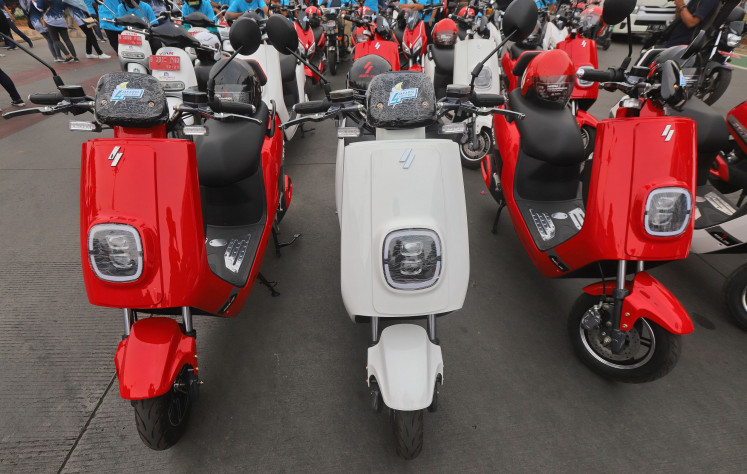Bibit, Chandra dodge legal process
Prosecutors said Friday they would invoke a rarely used clause to halt the bribery case of Corruption Eradication Commission (KPK) deputy chairmen Bibit Samad Rianto and Chandra M
Change text size
Gift Premium Articles
to Anyone

P
rosecutors said Friday they would invoke a rarely used clause to halt the bribery case of Corruption Eradication Commission (KPK) deputy chairmen Bibit Samad Rianto and Chandra M. Hamzah.
The Attorney General’s office said it would resort to deponeering, an Indonesian term for a legal action whereby the AGO can halt a case with the backing of the House of Representatives, for the sake of public interest.
Bibit Samad Rianto: JP/Wendra Ajistyatama
“Based on various considerations, a team has advised [me] to take the decision for the sake of public interest,” acting Attorney General Darmono said.
He said the move would be in line with the country’s fight against corruption.
“We expect that stopping the case would boost the KPK’s fight against graft in Indonesia, which has been a key issue for the last decade,” he told a press conference Friday.
He added that deponeering was the highest legal tool available to halt legal proceedings.
Without deponeering, Bibit and Chandra, now suspects, would face trial, which would leave the KPK with only two leaders after it lost chairman Antasari Azhar, who was convicted for murder.
Darmono said the AGO would seek the advice of President Susilo Bambang Yudhoyono, the Supreme Court about halting the case, but that the final decision remained with the Attorney General.
Achmad Rifai, the lawyer for the two KPK leaders, said he appreciated the AGO’s decision but that
he was ready to go to trial because he was confident his clients were innocent. He said deponeering
suggested that Bibit and Chandra were guilty.

“We may file to have their names cleared, and if refused, we could file a defamation lawsuit.”
Acting KPK chairman M. Jasin, however, welcomed the decision. “Four leaders [at the KPK] are definitely better,” he was quoted as saying by news portal kompas.com.
In December last year, the AGO issued a decree, or SKPP, to halt the prosecution against Bibit and Chandra, a move legal observers called weak. The Supreme Court earlier this month confirmed the decision of two lower courts, which said the SKPP was legally flawed.
Criticism of the AGO emerged following the Supreme Court decision, with anticorruption activists accusing the AGO of deliberately opting for a “weaker” legal tool to halt the prosecution.
The AGO denied the accusation, saying they went with the SKPP because it was faster. AGO officials have repeatedly claimed that deponeering would take too long because it would need the House’s approval, a process the government could not afford considering the controversy surrounding the KPK last year.









